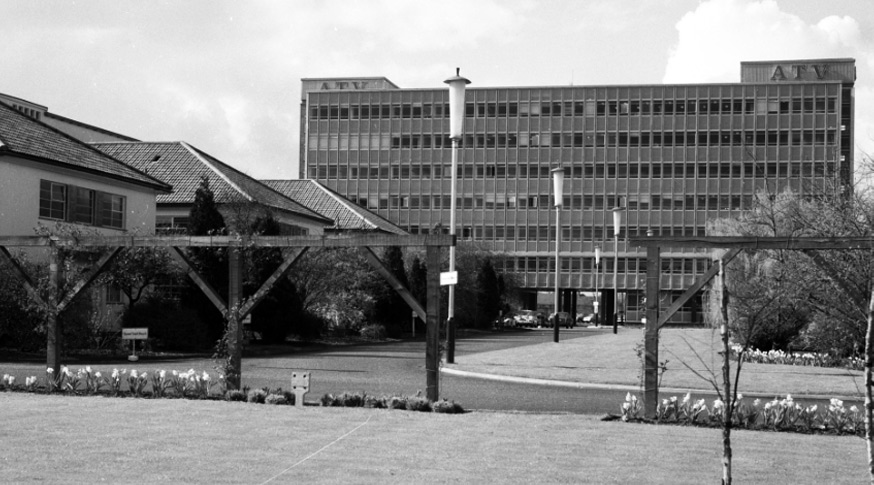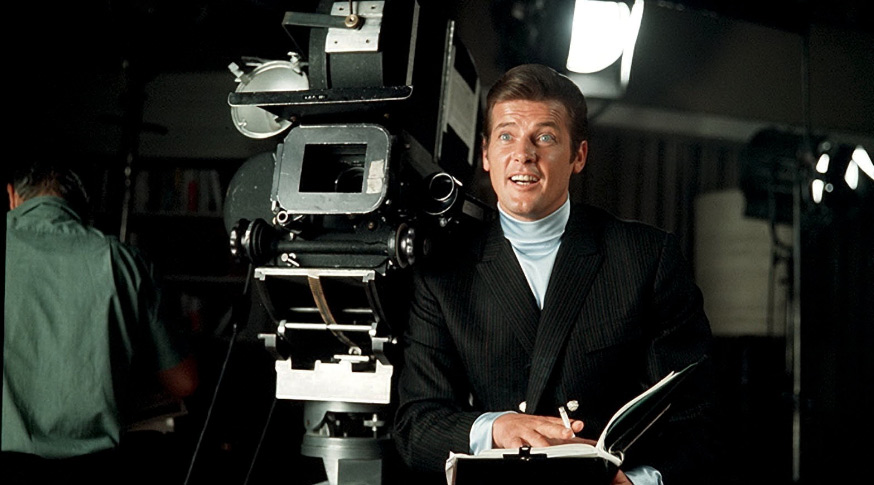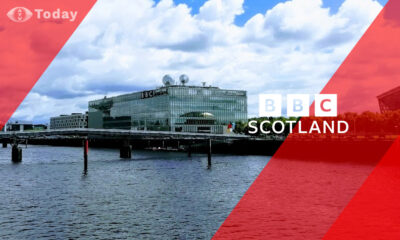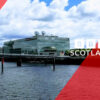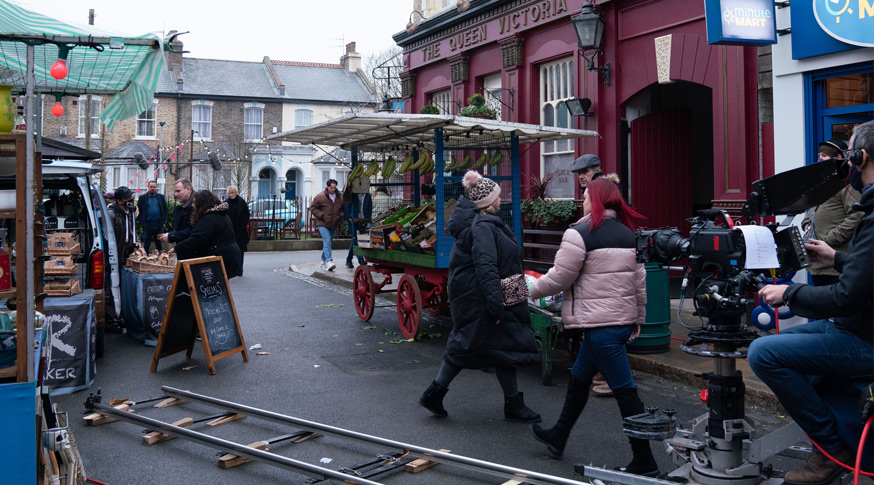The Financial Times and Broadcast note that finally, the corporation is to sell BBC Elstree Centre to French insurance company AXA Investment Managers in a deal that could be worth up to £70 million for the site. In 2021 it was announced that real estate consultant Lambert Smith Hamilton had surveyed the site, at that time it was suggested the land could be sold for housing which would see an end to media production which began in 1914 – when the complex opened as a film studio, it became a television centre in 1961.
The production centre has seen programmes axed or relocated in the build-up to the sale including the demise of Holby City and the relocation of Children In Need to Salford. It is currently home to soap opera EastEnders which uses a former workshop area as its main studio – along with a couple of original studio facilities – and has an extensive backlot which was rebuilt and opened in January 2022. The corporation had been under fire for the costs involved in building an entirely new backlot for the long-running serial, following declining ratings and increasing costs. The redevelopment of ‘Albert Square’ the fictional setting of EastEnders ended up £27m over budget and five years past its original opening date.

ATV Elstree.
In the deal with AXA the BBC would lease back the part of Elstree Centre that EastEnders occupies leaving AXA to utilise the studio complex site which was mostly rebuilt between 1958 and 1961 for television production. Grade Listed offices from the movie days also remain at the Beeb site along with Neptune House office block which staff at Elstree say is likely to be demolished as it is no longer fit for purpose and needs expensive repairs. The Beeb deal would see the Walford backlot and studio space guaranteed for 25 years.
Land in Elstree is currently hot property for studio developers with Sky opening a major complex nearby. The Borehamwood location, in the east of England, is near to London which makes it a perfect location for such developments. It is also home to the Elstree Studios, formerly operated by EMI which continues to host large scale movie and television productions.
The BBC Elstree site is the oldest operational studio in the area having first opened as a movie complex in 1914. The studios were home to several film companies including Neptune Films of which the complex took its name, followed by Ideal Films and finally British National Films. The studios lay unused for five years before being briefly home to a new type of movie – those specially made for television broadcast. Renamed the National Studios they were once more in operation between 1953 and 1958. These ‘for TV’ films were made by Douglas Fairbanks Jnr for American broadcaster NBC. When Independent Television launched in 1955 edited versions of these programmes were aired by Rediffusion Television for the ITV network.
In 1958 ATV bought the complex with the intent of carrying it on initially as a film for television studio centre. ATV paperwork of the late 1950s shows that the company was still undecided on where to build their television facilities which were to replace several converted theatres in the London area – these were being used as make-shift television studios. In 1960 ATV decided against purchasing land on the Southbank in South London and instead felt it would be more cost-effective to convert part of the National Film Studios at Borehamwood into fully equipped television facilities. Another consideration was that the site at Vauxhall was proving a problem in obtaining planning permission.

A promo for the new ATV Studios in Borehamwood.
The conversion for television included some demolition and re-building work (studio B was demolished and replaced entirely, with others modernised and adapted). The pride of ATV was their new office block – Neptune House, named after the founding film company on the site. When completed, archive figures state that the rebuild cost ATV £4,000,000. The television studios were partly designed on production facilities in North America and boasted “many new and valuable devices”. The ATV Elstree studios were proud to state, that they had by the opening day in 1961, broadcast and recording facilities for both the British system as well as the USA and Canadian standard. This led to some programmes having two crews – UK cameras and USA cameras running side by side!
When the ribbon was cut at ATV Elstree on April 7th 1961 there was still work to be done, a further two studios, A and B, were still under construction. ATV Elstree produced some of the best-known ITV television productions of the sixties and seventies, it also boasted a host of productions made for broadcast in the UK and America. This would lead to ATV’s downfall as an ITV broadcaster when the company was accused of being more interested in creating programmes for Birmingham Alabama, rather than Birmingham West Midlands. Today of course ATV would be seen as a leader in its market. Back then the regulator, unlike today, cared about local ITV and clipped the company’s wings.
Under ATV’s management, it wasn’t just television shows that the ‘entertainment studio’, Studio D, was home to. In 1966 a celebratory luncheon was hosted in the studio for the World Cup Winners, the England team’s meal of course was also transmitted live to viewers keen to see the nation’s heroes. Eamon Andrews fronted this event. Another lunch held in Studio D happened a year later in 1967 when ATV Network was issued with a Queen’s Award to Industry – the first time an entertainment company had been issued such a gong. They would get another two, the last in 1971.

The film studios buildings, 1960 (ATV)
In 1979 ATV Network started plans to give a new lease of life to ATV Elstree in the 1980s. The regulator had published plans to launch a new ITV breakfast service. ATV founded a spin-off company, Daybreak Television Limited, and submitted plans in 1980 to use Elstree as the base for the Daybreak programme. In the end, ATV were unsuccessful with TV-am winning the contract. This decision would lead ultimately to Elstree leaving the ownership of ITV.
In 1981 ATV Network went off the air, however, ATV Elstree continued to be used by incoming – and at that time part-owned by ATV’s parent company ACC – Central Television who continued to produce ITV programming at the complex until 1983. Central re-located to their newly built white elephant in Nottingham – selling ATV Elstree to the BBC in the same year. The television success has continued with BBC Elstree but with the main studios underused for many years, how successful an independent Elstree Centre is remains to be seen.
